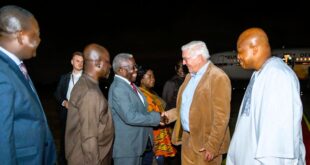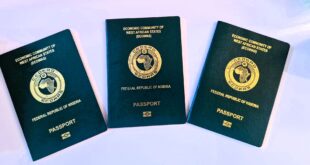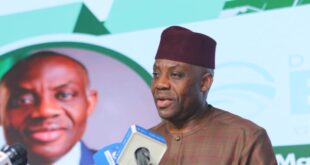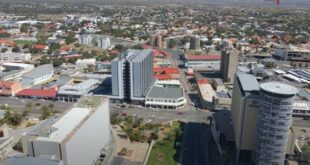With the emergence of the presidential candidates of the political parties participating at the next general election in Nigeria, all is now set for the poll which analysts say will be tough.
While it’s generally assumed that the ruling All Progressives Party, APC, would field President Muhammadu Buhari again at the February 2019 polls, the battle for the ticket of the main opposition Peoples Democratic Party, PDP, was fought until the very last minute.
The APC nominated Buhari by popular affirmation at its convention in Abuja on Saturday but the primary of the PDP, kept Nigerians awake from Saturday until well into Sunday. At the end of the event, held in Port Harcourt, Rivers State, Atiku Abubakar, a former vice president, emerged victorious. He beat off competition from Sokoto State governor, Aminu Tambuwal, Senate President Bukola Saraki and others. Atiku polled over 1,500 votes as against closest contender Tambuwal who got 693 votes.
https://twitter.com/atiku/status/1048889487823196160
The top five candidates were as follows: Atiku 1,532 votes, Tambuwal 693, Saraki 317, Rabiu Kwankwaso (a senator), 158 and Ahmed Dankwambo (governor of Gombe State), 111. Incidentally, the frontrunners in the PDP primary election, including Atiku, recently defected from the APC.
With the deadline for the submission of names of candidates for the 2019 elections now over, the battle line is drawn for what many observers say will be an epic poll.
Buhari versus Atiku
The competitive form of the PDP primary election seems to have improved the image of the party, which ruled Nigeria from 1999 until 2015, when Buhari defeated then President Goodluck Jonathan. While the selection process in the PDP is deemed democratic, the APC’s primaries were generally messy across the country.
Moreover, there is mass disenchantment in the country about the economic situation of the country under Buhari, who has been accused by the opposition of lacking the competence to superintend national affairs. The worsening security situation especially in the Middle Belt and a resurgent Boko Haram in the North East have also played against the president.

Atiku Abubakar, who was vice president from 1999-2007, however has a reputation problem. Though considered more educated and competent than the incumbent by analysts, he is held to be corrupt. His supporters have however defended Atiku, saying the charge of corruption had never been proven and that their the handiwork of his political enemies, one of whom is former President Olusegun Obasanjo. The two leaders fell out during their tenure.
READ ALSO Nigeria fixes date for next presidential election
Buhari has the power of incumbency but Atiku has a political network that spans the whole country, making the 2019 election one to look forward to.
The presidential and parliamentary elections will be held on 16 February 2019. The polls are seen as a litmus test for Nigeria after the 2015 process was widely hailed as the best in Nigeria’s recent history.
Who will win? No analyst will wager a bet yet due to the dynamic nature of politics.
Kola Tella
 THE AFRICAN COURIER. Reporting Africa and its Diaspora! The African Courier is an international magazine published in Germany to report on Africa and the Diaspora African experience. The first issue of the bimonthly magazine appeared on the newsstands on 15 February 1998. The African Courier is a communication forum for European-African political, economic and cultural exchanges, and a voice for Africa in Europe.
THE AFRICAN COURIER. Reporting Africa and its Diaspora! The African Courier is an international magazine published in Germany to report on Africa and the Diaspora African experience. The first issue of the bimonthly magazine appeared on the newsstands on 15 February 1998. The African Courier is a communication forum for European-African political, economic and cultural exchanges, and a voice for Africa in Europe.

































